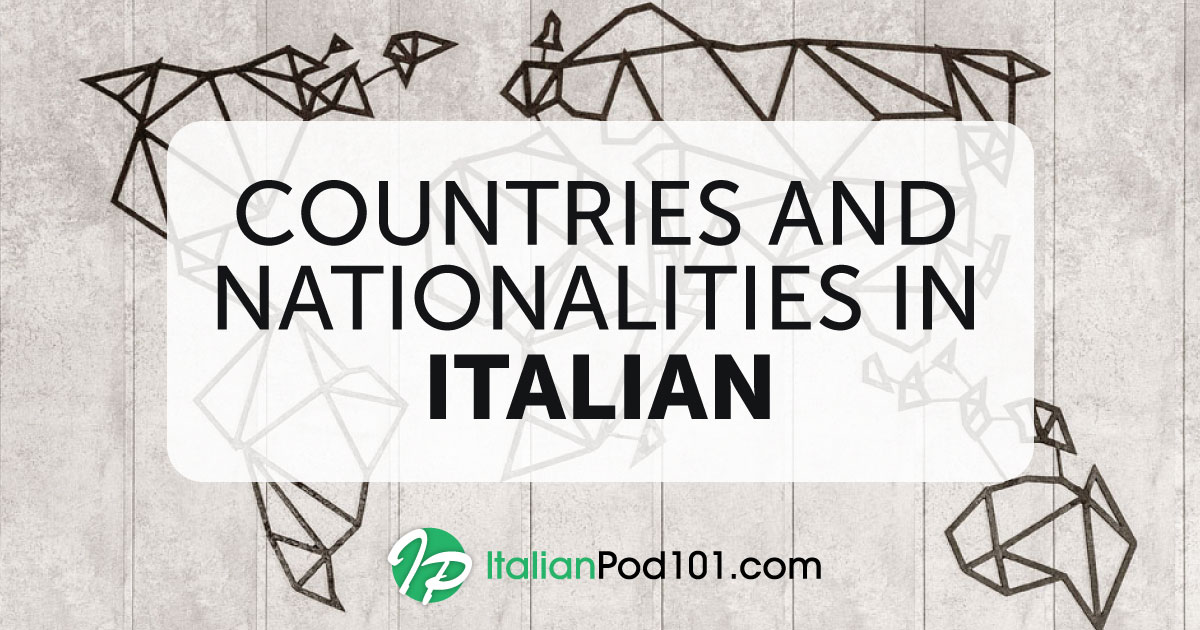
Palm Sunday in Italy is a major occasion around the country, with many unique religious celebrations. In this article, you’ll learn the basics about Palm Sunday, Italian traditions for this holiday, and some relevant Italian vocabulary.
Let’s get started!
1. What is Palm Sunday?
On Palm Sunday, Italian Christians celebrate Jesus’ entrance into Jerusalem as described in the Bible. According to the Bible, he entered riding a donkey and people from the city welcomed him by throwing down palm branches in his path. This took place exactly one week before his Resurrection from the dead, which is celebrated as Easter one week after Palm Sunday.
In Italy, Palm Sunday is also largely associated with plants, particularly the palm tree and olive branch.
-
→ Learn about Easter Monday in Italy with ItalianPod101.com!
2. When is Palm Sunday in Italy?
The date of Palm Sunday varies each year, along with Lent and Easter. For your convenience, here’s a list of this holiday’s date for the next ten years:
- 2020: April 5
- 2021: March 28
- 2022: April 10
- 2023: April 2
- 2024: March 24
- 2025: April 13
- 2026: March 29
- 2027: March 21
- 2028: April 9
- 2029: March 25
3. How Does Italy Celebrate Palm Sunday?
There are many unique Palm Sunday traditions in Italy. One such tradition is that of attending the Mass and receiving a palm branch (ramo di palma) or olive branch (ramo d’ulivo) there. Usually, the branches are bundled together right outside the church. For the Mass, it’s common for a priest to knock on the church doors three times, which is a symbol of Christ’s entry into Jerusalem.
At around nine-thirty in the morning, the Pope visits St. Peter’s Square in Rome. In the square, there’s a procession of people carrying palm or olive branches, which leads to the steps of St. Peter’s Basilica where the Mass takes place. Over the duration of the procession, the Pope and other clergymen give a benedizione, or “blessing,” to those carrying the branches.
Throughout Italy, many people may celebrate Palm Sunday—and the entirety of Holy Week—with some nice, home-cooked dinners. Some examples of popular Italian Palm Sunday dinner items include stracciatella soup, lamb, and Italian Easter bread.
-
→ Wondering what other foods Italians love to eat for dinner? Check out our lesson on Popular Italian Home-Cooked Meals and our vocabulary list titled What’s Your Favorite Italian Food?
4. World Youth Day
Did you know that in Italy, Palm Sunday has also been deemed World Youth Day according to the Christian calendar?
Because of this, the Pope’s Palm Sunday message is often geared toward the youth of today and the problems they face as they relate to Christianity.
5. Essential Italian Palm Sunday Vocabulary
Ready to review some of the vocabulary words from this article? Here’s a list of the most important words and phrases for Palm Sunday!
- Ramo — “Branch”
- Palma — “Palm tree”
- Benedizione — “Blessing”
- Ramo di palma — “Palm branch”
- Passione — “Passion”
- Seconda domenica di passione — “Second Passion Sunday”
- Acqua santa — “Holy water”
- Ulivo — “Olive”
- Ramo d’ulivo — “Olive branch”
- Processione — “Procession”
To hear the pronunciation of each word, and to read them alongside relevant images, check out our Italian Palm Sunday vocabulary list!
Final Thoughts
We hope you enjoyed learning about Italian Palm Sunday traditions with us, and that you took away some valuable cultural information.
Do you celebrate Palm Sunday in your country? If so, are celebrations similar or quite different from those in Italy? We look forward to hearing from you in the comments!
If you’re fascinated with Italian culture and can’t get enough, we recommend that you check out the following pages on ItalianPod101.com:
- Top Five Italian Pop Culture Things/Icons You Need to Know About!
- The Top Five Things You Need to Know About Italian Society
- The Complete Guide to Italian Internet Slang
- Top 10 Italian TV Shows to Boost Your Italian
- Giorno Dell’unità Nazionale: National Unity Day in Italy
That should be enough to satisfy your thirst for Italian cultural knowledge for a little while, but for more fun resources on all things Italian, create your free lifetime account today.
We look forward to having you! 🙂













